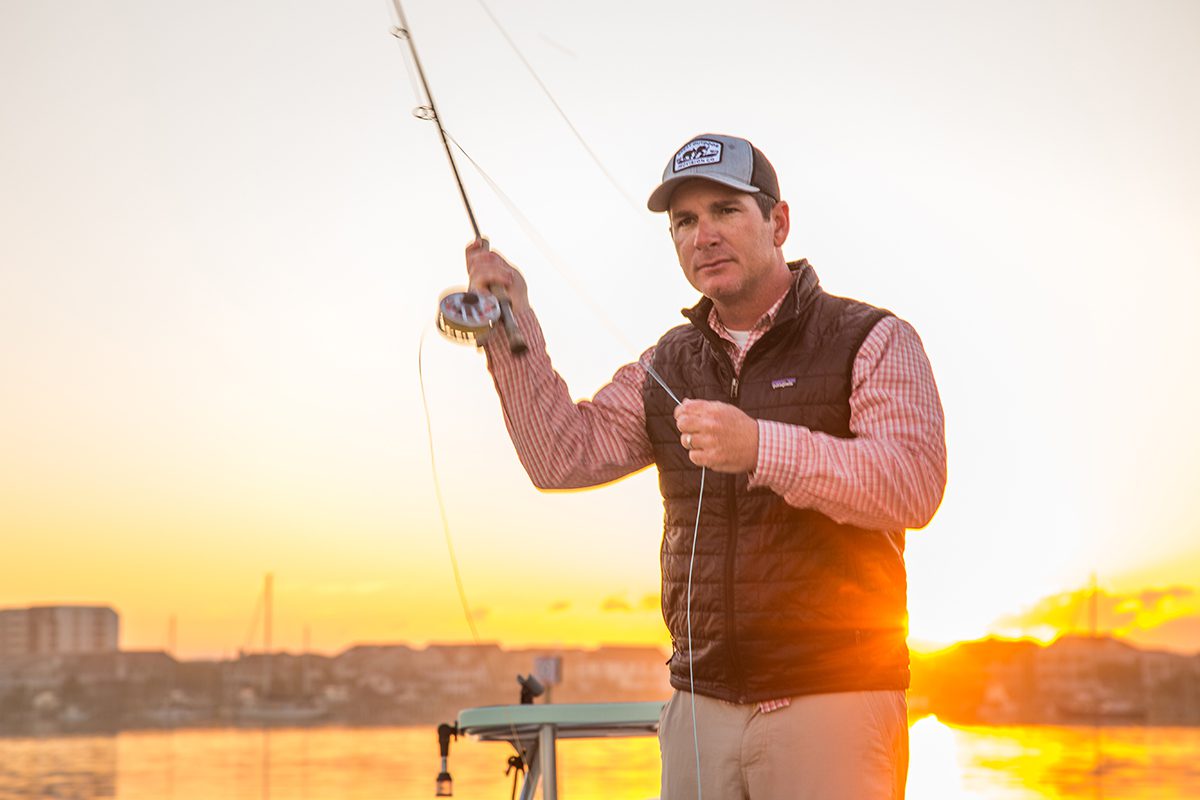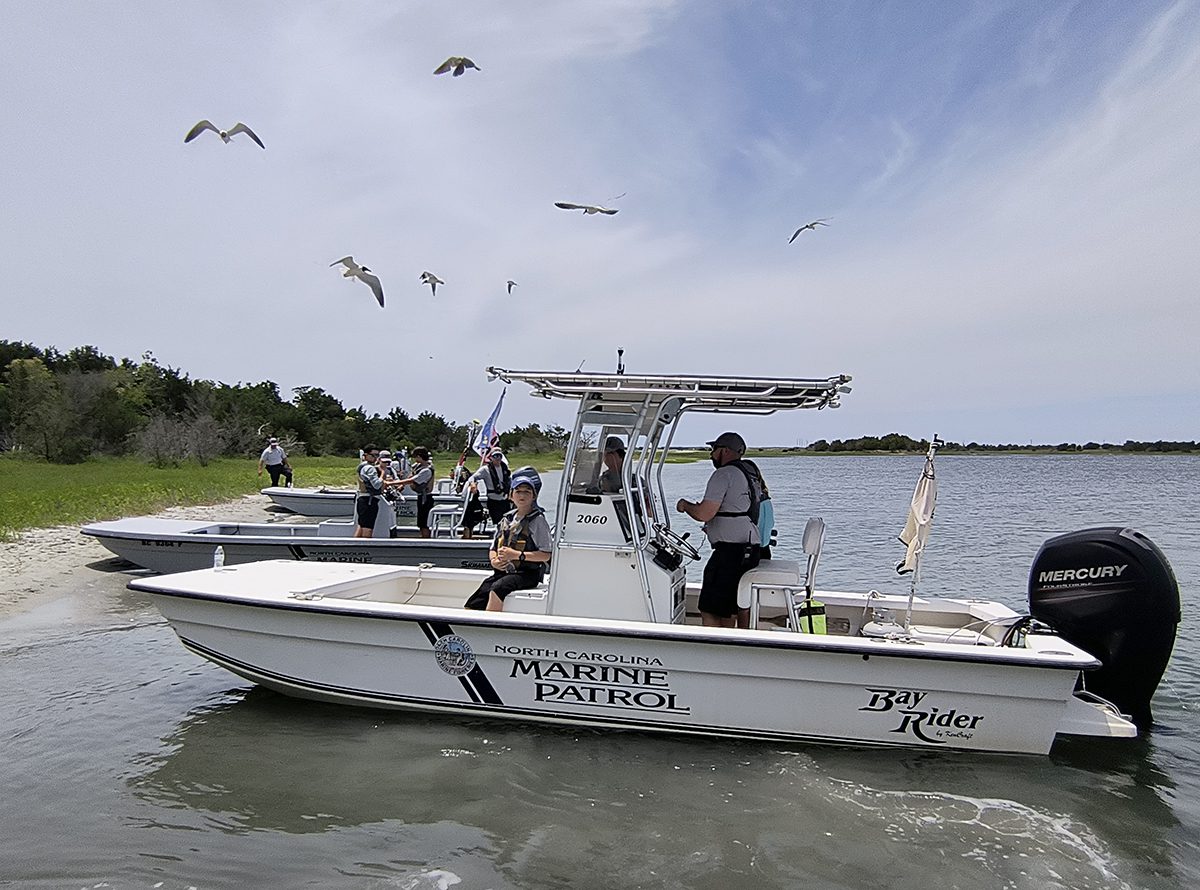Last of two parts
WILMINGTON — The environmental engineering business was a relatively new concept when Rick Catlin started his firm. He had to invent terms and draw up concepts yet to be formulated in his fledgling profession.
Sponsor Spotlight

He saw his professional background as an opportunity to mold public policy on issues he valued, particularly water quality and public health.
Catlin was named one of this year’s recipients of the N.C. Coastal Federation’s Pelican Awards for his legislative work in passing a study on water resources in the Cape Fear River basin. The study is being conducted by the legislature’s Environmental Review Commission, which will examine how rising water demands will affect long-term surface and groundwater supplies. Proponents of the law say it will help communities in the lower Cape Fear area secure water resources.
The federation also hails Catlin for his work on a coal ash bill that addresses pollution problems at the Sutton Power Plant in Wilmington.
“He worked tirelessly on the coal ash issue,” said Mike Giles, a coastal advocate with the federation. “He cares a lot about people and he cares a lot about the environment. He’s been a big supporter of protecting our coastal environment.”
Sponsor Spotlight
A Blooming Friendship
Giles was introduced to Catlin when the latter was elected to the New Hanover County Board of Commissioners. Catlin would frequently telephone Giles to get his thoughts on coastal environmental issues. A friendship developed through those early conversations.
Catlin has maintained his relationship with Giles since his move to state office, where he’s sought the federation’s opinion on environmental issues, including the water study bill, Giles said.
“I think he realizes that the federation is a platform where he can bounce ideas for potential legislation and where we can bounce ideas off of him,” he said. “He is an elected official and we don’t always agree with him, but whether Republican, Democrat or independent, my hat’s off to anyone who runs for office.”

Giles said Catlin has added bill amendments that have “softened the blow” on laws pertaining to the environment.
In 2013, Catlin and three fellow members of the state House introduced House Bill 396, the Private Well Water Education Act. It requires local health departments to educate the owners of private drinking water wells about minimum standards for healthy drinking water and required and optional water testing.
He referred to that bill when he added an amendment to Senate Bill 786, which repeals a moratorium on hydraulic fracturing. Catlin voted against the bill, but not before plugging in the requirement that chemicals used during fracking be disclosed to private well owners whose property is near fracturing operations.
“They wanted to keep it a secret what they inject,” Catlin said. “I took away the secret.”
Such positions have not made him popular in his party. Though he is chair of the House Environment Committee and vice-chair of the Appropriations Subcommittee on Agriculture and Natural and Economic Resources, Catlin’s been snubbed by way of being omitted from serving on conference committees on environmental issues.
“I technically understand the environmental issues, while other people understand the political environmental issues,” he said. “It’s just politics and I’m an environmental engineer and I take a different focus.”
That’s one of the things supporter and family friend Laura Parks appreciates.
She recently changed her party affiliation from Republican to unaffiliated, in part, because she has not liked the direction her party has taken on environmental issues.
“I’ve felt like sometimes the voices within our party that truly understood these issues and had a respect for and wanted to protect our quality of life here weren’t heard,” Parks said. “It brought joy to know there was a fellow Republican who stood for that. Truly, I don’t see on the horizon anyone that has the command of skills that he’s brought to the table. He is very unique in his professional attributes. He’s definitely a pro-business person. He’s definitely a pro-industry person. But, he would never sign off on things that would be detrimental to the public health or our natural resources.”
Carrying the Torch
Catlin’s predecessor, former Rep. Carolyn Justice, R-Pender, knows what it’s like to be in the minority on environmental issues within her political party.

“Based on real facts and, in Rick’s case, on science and what he knows to be true this is where he has to stand. He just has courage,” she said. “There are legislators who don’t have that political courage. It’s what’s made him a unique, special legislator. I knew he’d take a stand. I knew he’d be able to do it with decorum. He’s not an argumentative person who assumes you’re stupid just because you don’t agree with him. That has worked well for him.”
Justice had never heard of Catlin until he ran against her in the 2004 Republican Primary for House District 16, which, at the time, consisted of portions of Pender and New Hanover counties, before it was redrawn.
During that primary race Justice knew two things about her opponent: his campaign had a hefty financial backing and he was a formidable opponent.
The day following the race, a re-elected Justice received an email from her rival congratulating her on her victory and offering his support.
“It was of great value to me,” Justice said. “Selfishly it did affirm that I’m a pretty good legislator. From that day on we became very good friends.”
Justice retired after serving her fifth term in the General Assembly. She turned her political efforts to aiding Catlin’s 2012 campaign.
“I liked what he stood for and I thought, if he wins it, everything I fought for wouldn’t go away,” she said.
Justice was part of the 2011 legislature that approved changing the law that banned the construction of terminal groins on the coast. The law restricted the number to four groins, a rule House members grappled over for some time.
The bill also requires the applicant for a terminal groin to prove it can fund building the groin and maintaining it. The bill also prohibits local governments from paying for terminal groins with special obligation bonds or general obligation bonds without voter approval.
Sen. Bill Rabon, R-Brunswick, in 2013 introduced a bill to lift the cap and ease the permitting process for terminal groins. Catlin curtailed the bill and the cap remained.
“Our issue was not only an environmental issue, our issue was what it was going to cost us,” Justice said. “With Rick, it’s more of a general attitude on the subjects that are important to us that I know he has been the voice that has stood up and defended those issues that are important to the coast and environment. His leaving is a real loss to the General Assembly. I think there’s some good potential for some good candidates. I don’t know that any of them are immersed in or as well versed in our coastal issues.”
News of Catlin’s decision to bow out of the 2016 race was not a shock to those who know him.
“His supporters are not at all glad, but we absolutely understand,” Parks said. “Selfishly you can’t want him to be somewhere he can’t be. I think that it would be natural for him to re-enter politics and want to make a difference. They could use him frankly. I think it would be a mistake for future legislators not to seek him out.”
Parks was a staunch Republican when she was introduced to Catlin about five years ago as she was being nudged into seeking office on the local education board. She first met Catlin and his wife at a monthly Republican Party meeting in New Hanover County.
Catlin became a mentor to Parks. She noticed early on in their friendship that Catlin “lights up” when he talks about finding solutions to issues facing the state and his local community.
Work Still to Be Done
At 61, Catlin is at an age where retirement is on the horizon for the average American.
“I don’t know that I’ll retire,” Catlin said. “The work, it’s about making the world better, making the environment better. All of us, we don’t live here forever. I want to make some difference.”
As for 2016: “Busy. Very busy,” Catlin said.
When the legislative short session kicks off next spring Catlin will have more than a few issues to address.
Here’s a quick preview:
Following what Catlin calls an “amazingly long” session this year, he plans to introduce a bill to shorten the legislature’s so-called “long” sessions. Sessions like this past one make it difficult for “regular workers” to hold office, he said.
Policies secretly slipped into the state budget at the last minute concerned Catlin. He plans to introduce a bill that would forbid policies from being inserted into future budgets.
Something that also may come down the pike is legislation that would force municipalities and counties to reduce water irrigation costs to customers. The idea is that if irrigation bills are more affordable, fewer private irrigation wells will be installed, which will help conserve groundwater sources.
“The good thing is I will be able to work until April 15,” he said. “I will work hard during the short session. It’s the last opportunity I will have, for now at least.”







